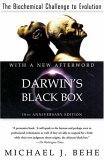Eric E. Wright's Blog, page 47
September 27, 2011
Ebooks and how to download
Available on Kindle, iPad, iTunes, Sony, Kobo, Barnes & Noble, and many other formats.
The Lightning File: Reporter Josh Radley uncovers a network of companies laundering drug money to finance a terrorist attack on American interests from Canadian soil. Just when Josh needs to focus on deciphering a cryptic Arabic file, his marriage is unraveling, his job is threatened, his childhood faith is fading, and he falls for an Asian beauty. Download a free sample or purchase for $6.99. Go to http://www.smashwords.com/books/view/... Use coupon code EB85Q for additional discount until Oct. 15th.
Readers and reviewers enthuse: pulse-racing thriller – pages turn themselves – couldn’t put it down – realistic characters – book is terrific .
Captives of Minara: Journalist Josh Radley travels to Pakistan to write about the excavation of a 4500-year-old lost city. While there he stumbles on a gang kidnapping women and children to be sold into slavery. Josh and his daughter Janice and wife Stephanie face sabotage, theft, and murder. $9.99 at Amazon, various prices at other eStores. Go to: http://www.amazon.com/s/ref=nb_sb_nos...
Readers and reviewers call it action-packed… authentic immersion in the culture… full of page-turning suspense… heart wrenching… gripping…moving book…I couldn’t put it down.
Through a Country Window - Out-of-print favorite now available as ebook!
What happens when a farm girl from South Carolina and a city boy from Toronto trade their suburban split-level for a log house in the country? Besides crazy craft on the Ganny and live theatre in a barnyard, Eric and Mary Helen Wright rediscover the creative majesty of God. Download a free sample or purchase for $5.99. Go to: http://www.smashwords.com/books/view/... Use coupon code, YT25V for additional discount until Oct. 15th.
HOW TO DOWNLOAD EBOOKS:
TO READ ON YOUR COMPUTER you can download an app from ADOBE; http://www.adobe.com/products/digital... and use this app to read books.
TO DOWNLOAD FOR KINDLE; first download the free Kindle app for your computer: http://www.amazon.com/gp/kindle/pc or/mac. Then download books to your pc from Smashwords.com or wherever you find them. Use the following step to move to Kindle.
TO TRANSFER TO YOUR KINDLE FROM YOUR PC or Mac: Go to: http://www.youtube.com/watch?v=7UPOgX... for a visual description.
FULLER DESCRIPTIONS; For more information on these and other books visit, www.countrywindow.ca.
For regular inspirational readings visit: http://ericewright.wordpress.com/
September 26, 2011
A Frantic Sparrow
One day I went out to my vegetable garden to check on growth and found a dragon-fly caught in the fence I'd erected to discourage rabbits. It's gossamer wings were snared in the fence's nylon mesh. How sad to see this wondrous creature, created to dart hither and yon, rendered immobile. I carefully freed it and away it flew.
The next day I found a wee sparrow who'd flown through a gap in the insect screen around our gazebo but could not find its way out. It frantically flitted here and there striking the netting but finding no exit until I opened a wide gap. Immediately, it soared away in the blue sky.
We would do well to learn from these creatures to avoid the snares set in our path by the evil one. What is obvious to us from our perspective is well night invisible to the dragon fly and the sparrow. Just so, depending on our temperament and maturity, the devil will craft an almost invisible snare designed specifically for us. To one it will be the lure of wealth, to another the pride that comes from being known as a philanthropist or dissatisfaction with one's state. "People who want to get rich fall into temptation and a trap and into many foolish and harmful desires that plunge men into ruin" (1 Tim. 6:9). One person will be tempted by the lure of sexual gratification or gambling or devouring a dozen donuts.
Satan has a myriad ways to trip us up. He often uses people who disagree with us to tempt us to anger or resentment. Paul counsels us to "kind to everyone" so we can "escape the trap of the devil" (2 Tim. 2:24,26).
Oh, I know, it's not fashionable to mention the devil nowadays. But better to watch out for temptations than gloss over the reality of spiritual warfare. "Put on the full armor of God that you may be able to stand against the devil's schemes" (Eph. 6:11). Fortunately, like David we know that our "help is in the name of the Lord…who helps us escape like a bird out of the fowler's snare" (Psalm 124:7,8). Christ is the Victor!








September 15, 2011
Stately Trees and Quiet Times
I stood motionless on the deck at the back of our house and gazed at the soaring maples and pines east of the house. The thought came to me, "They grow steadily and yet they do not move from where they are rooted." Of course, trees don't move unless lashed by high winds, but what lesson is there in that? After all, we are humans born with two feet to run and walk and explore God's earth. Trees don't have our freedom of movement. But…
 Perhaps, we move around too much. We dash from task to task. We lead important lives and must be seen to be almost frantically busy to be successful—mustn't we? There is income to earn, emails to answer, Facebook to check, blogs to skim, phone calls to make, texts to send, repairs to complete around the house, and plans to outline for tomorrow and next week and next month and…. Work, work, work. Busy, busy, busy.
Perhaps, we move around too much. We dash from task to task. We lead important lives and must be seen to be almost frantically busy to be successful—mustn't we? There is income to earn, emails to answer, Facebook to check, blogs to skim, phone calls to make, texts to send, repairs to complete around the house, and plans to outline for tomorrow and next week and next month and…. Work, work, work. Busy, busy, busy.
I'm one of those people who make lists. I have long lists of tasks to do so I can check them off my list. But the lists never seem to get smaller. It's almost as if I have a compulsion to demonstrate my importance by checking off tasks on a list! Sadly, my devotions often are just another item on my to-do-list. I must have devotions if I'm to grow, mustn't I? Of course, but…
Trees just silently grow. They imbibe water and nutrients from the ground. The sun powers their leaf factories. And slowly, week after week, year after year they grow until they become tall and stately like those on our property. Wonderful!
God counsels us, "Be still and know that I am God" (Psalm 46:10). Without still times, what an earlier generation called quiet times, how can we connect with God? And if we don't connect with God, how will we sense what the Holy Spirit desires of us? The Spirit seldom makes himself heard above the blare of th e radio or TV.
e radio or TV.
The Psalmist counsels us to search our hearts, remind ourselves of how precious we are in God's sight and be still upon our beds. (See Psalm 4) Meditation is a vital component of Christian growth. And meditation requires quietness, stillness, a thoughtful pondering of God's glories and the wonders of our salvation. In the desert David meditated upon God "through the watches of the night" (Psalm 63:6). The righteous man in Psalm one "meditates day and night" (Psalm 1:2). David writes of meditating "on all your works" (Psalm 143:5).
Modern life is much too frantic, leaving little time to stop, to sit, to think, to pray, to meditate, to listen to God. Let's buck the trend. Avoid being known as too busy, instead let us privately carve out times when we can be still, listening for the promptings of the Holy Spirit. Admittedly, that's not going to be easy for me.








September 3, 2011
Angry Words
A few days ago, I impatiently responded to someone with angry words. Suddenly, what had been a close relationship became strained. Silence fell and stretched on for hours and hours. It took a humble apology to restore a degree of amiability. Even though forgiven, the words cannot be erased. They linger there in the memories of the two of us, introducing a measure of constraint and caution between us.
How wisely James warns us about the danger an untamed tongue presents. "The tongue is a small part of the body, but it makes great boasts. Consider what a great forest is set on fire by a small spark. The tongue also is a fire, a world of evil among the parts of the body. It corrupts the whole person, sets the whole course of his life on fire, and is itself set on fire by hell"(James 3: 5,6).
In this season of fires throughout Texas and across Northern Canada, we have ample illustrations of the dangers posed by a spark. Once ignited, fires in tinder-dry forests and grasslands prove almost impossible to control. Authorities employ water-bombers to try and douse them, even while they appeal for people to pray for torrential rains. Rain from above is the best solution.
Angry, hurtful words can quickly incinerate loving, happy relationships: friendships, marriages, churches, communities, countries. No wonder the Bible counsels us to quickly confess our faults, ask for forgiveness, seek immediate reconciliation wherever schism erects its ugly head. Like a sprinter, we should be quick off the mark to apologize for angry or hurtful words. Such a humble approach opens the way for God to send the restoring rain of His presence.
Unfortunately, pride often keeps us from admitting wrong. We try to justify ourselves. We blame the other person for provoking us. When it comes to confessing sin, we slow down our spiritual responses so much that we resemble snails leaving a slimy trail of self-indulgence behind us. Because the problem is self, we worry that admitting fault will somehow damage our self-image. At root it is a failure to deny ourselves and take up our cross daily. But in reality, humility and honesty are the kind of qualities that contribute to a biblical self-image.








August 19, 2011
Enjoying Simple Pleasures
Enjoyment comes in many forms. A holiday in Banff. An affirming friendship. A wide-screen TV. A candlelit dinner at a high end restaurant. A Sunday afternoon nap. The smell of a new car. Reading a good story while sipping a cup of coffee. A new Iphone.
But as I think back over my life, I've often been disappointed by experiences anticipated or things desired passionately. My first portable radio quickly lost its fascination. Our first new car turned out to be a lem on. No, disappointment has not dogged my steps, but I'm gradually learning to appreciate the simple pleasures of life.
on. No, disappointment has not dogged my steps, but I'm gradually learning to appreciate the simple pleasures of life.
God has given us five senses to use in the enjoyment of his gifts. "God gives us richly all things to enjoy"(1 Timothy 6:17). Many of these simple things flow around us unheeded as part of the natural world in which we live—unnoticed until we pause long enough to stop, look, and listen. And most of gifts are free!
Sight. The sun rising in the morning and the moon at night. Cumulous clouds drifting across the sky. The breeze ruffling the leaves on the trembling aspens. Swallows dipping and diving for insects. A squirrel eating a peanut. The unfurling of a flower. Words on paper telling a wonderful story. Snow covering everything in a white blanket. And letters in the mail.
Taste. The first asparagus of the season. Ripe, garden-grown tomatoes, cut thick and eaten juicy on a slice of freshly baked bread. The taste of one's own home grown beans, carrots, peppers, and cucumbers. A freshly picked cob of corn smothered in butter. A bowl of soup on a cold winter's day. And, ah yes, a steak broiled on the BBQ.
Touch. A hug from a grandchild. The encouraging touch of a friend. A kiss from one's sweetheart. The feel of opening a new book.
Hearing. The enthusiastic harmony of a congregation singing, How Great Thou Art. The chatter of a child. A phone call from a friend living far away. The wind rustling leaves in a tall oak. The whistle of a cardinal.
Smell. The scent of freshly plowed ground or cut grass. The fragrance of a lily or the earthy pungency of a forest glade after rain.
How very kind of our Heavenly Father to have kept me from great wealth lest my appreciation for simple things become jaded. No costly caviar nor expensive wine for me: better a burger on the barbie and a fresh-brewed cup of coffee, the sight of towering storm clouds or a rainbow after rain.
Lord, take envy far from me. Instead give me the good sense to enjoy the pleasures you have spread all around me—the simple pleasures of life.








July 26, 2011
New ebook!
What's it about?--"What happens when a farm girl from South Carolina and a city boy from Toronto trade their suburban split-level for a log house in the country? Besides crazy craft on the Ganny and live theatre in a barnyard, Eric and Mary Helen Wright discover crickets in the bedroom, thunder on the ridges, and romance in a snowstorm. They also rediscover the creative majesty of God.
July 24, 2011
Biochemical Evolution or Intelligent Design?
 Darwin's Black Box: The Biochemical Challenge to Evolution by Michael J. Behe
Darwin's Black Box: The Biochemical Challenge to Evolution by Michael J. BeheMy rating: 4 of 5 stars
Behe's book is not one to read while lazing on the beach, as you can tell by how long it has taken me to read it. Although it is scientific and many of the terms are far beyond my experience, Behe does a commendable job of simplifying and illustrating complex ideas and facts.
Behe's basic thesis is that although Darwin's theory has virtually triumphed everywhere, yet it explains only those jumps in development that were visible at the time of Darwin. Since then discoveries of cells, atomic and subatomic elements, and an ever more infintesimally minute universe creates enormous difficulties for evolutions's basic mechanism.
The astonishing complexity of subcellular organic structures that compose; for example, the eye, the bodily clotting mechanism, the transport system between cells, make the possibility that these evolved by chance through natural selection unbelievable. There is no satisfactory evolutionary mechanism to explain these structures.
There is something irreducibly complex about most biological systems. they couldn't have just happened by the random interaction of chemical processes because to work at all, each system must be complete.
This is a challenging book, a book that has been maligned for at least a decade, and in reading the reviews about it, I see that it is still maligned. But why? For the conclusions not for the arguments. A neutral person who reads this book should honestly be able to admit that in the overwhelming appearance of design in all things, the onus of proof rests with those who seek to refute intelligent design.
Behe spends eleven packed chapters and appendices painstakingly outlining the incredible complexity of biochemical systems. Admittedly, even though I had university organic chemistry, much is over my head--and that admission will probably be enough to give the detractors of Behe more fuel.
In summary he says in chap 9, “The impotence of Darwinian theory in accounting for the molecular basis of life is evident not only from the analyses in this book, but also from the complete absence in the professional scientific literature of any detailed models by which complex biochemical systems could have been produced, as shown in Chapter 8. In the face of the enormous complexity that modern biochemistry has uncovered in the cell, the scientific community is paralyzed. No one at Harvard University, no one at the National Institutes of Health, no member of the National Acacemy of Sciences, no Nobel prize winner—no one at all can give a detailed account of how the cilium, or vision or blood clotting or any complex biochemical process might have developed in a Darwinian fashion. But we are here. Plants and animals are here. The complex systems are here. All these things got here somehow: if not in a Darwinian fashion, then how?” p. 187
Even a 10,000 word supposedly scientific paper did not explain evolutionary processes but rather declared them factual. The scientific community, by and large, professedly unbiased, denigrates any serious attempt to grapple with the appearance of design that does not strengthen evolutionary presuppositions. Why unless they have an axe to grind?
The irreducible complexity of biological systems renders it preposterous to think that they could have evolved gradually. Thus one theory postulated for sudden development is through two then more cells being joined together in a symbiotic relationship that later becomes one working system. But both must have been already functioning. How did they start functioning?
Another postulates development through math complexity theory found in understanding computer systems. But!
Basically, the book shows the evidence of intelligent design on the most microscopic of levels. Concluding that beings evidence intelligent design comes not from sacred books or sectarian beliefs but from the data--the purposeful arrangement of parts and the irreducible complexity of biological systems.
Strangely, that stalwart of evolution and atheism, Dawkins, in his book The Blind Watchmaker, says that biology is the study of things that appear designed. “He insists that the appearance of design, which he ascribes to natural selection, is overwhelming.” (p. 264) He calls it an illusion...an appearance...but where is the scientific explanation?
A recommended, but tough book.
View all my reviews
July 20, 2011
Cardinals and the Big Picture
The other morning I heard a pair of cardinals whistling to each other. Not only is their red plumage distinctive but so is their song which I've sought to mimic ever since childhood. Also unique is the perch from which they warble. In my experience, cardinals always sing from the highest braches of tall trees. Why? I don't know. Perhaps they enjoy having a panoramic view of the landscape below.
Cardinals can teach us a lesson about perspective. Last Sunday a missionary friend talked about the importance of keeping the big picture in view. He recalled the incredible vista he and his wife enjoyed when they journeyed to an overview at 10,000 feet up in the Alps. He then turned to Luke 24 where Jesus gives his disciples an overview of his mission. "Everything must be fulfilled…The Christ will suffer and rise from the dead on the third day and repentance and forgiveness of sins will be preached in his name to all nations" (Luke 24:44,46,47). Not for the first time Jesus reminded his disciples that everything in the Bible will be fulfilled, including his promise that the Gospel would be preached throughout the world.
from the dead on the third day and repentance and forgiveness of sins will be preached in his name to all nations" (Luke 24:44,46,47). Not for the first time Jesus reminded his disciples that everything in the Bible will be fulfilled, including his promise that the Gospel would be preached throughout the world.
We need to keep the big picture in mind as we seek to serve Christ Jesus in a world of suffering and injustice. Whatever the setbacks we face, we can be assured that Christ will build his kingdom, the Gospel will spread everywhere, hellish gates will not prevail against it. He will come again. There will be a day of judgment. A new heaven and a new earth will appear.
We would be wise to frequently dip into the big-picture portions of Scripture: Genesis 1,2, Exodus 20, Matthew 5-7 & 2 8, Romans 8, Ephesians 1, Colossian 1, Revelation…and many more.
8, Romans 8, Ephesians 1, Colossian 1, Revelation…and many more.
Currently we live just a few miles from the shore of Lake Ontario but our house is nestled in a grove of mature trees. We can't see the lake from our living room window but we know it's there. The unfolding plan of God is just as real and certain as the existence of Lake Ontario. But we need to keep it in mind lest we lose perspective.








June 22, 2011
Frank McCourt and 'Tis
 'Tis by Frank McCourt
'Tis by Frank McCourtMy rating: 3 of 5 stars
This New York Times bestseller continues the aclaimed story of the author, first begun in "Angela's Ashes". It recounts McCourt's journey from Ireland to become an impoverished immigrant to America. He lands in New York at age ninteen, gets a job at the Biltmore Hotel where he encounters prejudice in the apparently classless society, is drafted into the army, sent to Germany. He returns to America where he works on the docks until he can by dint of herculean effort educate himself and become a teacher. He falls in love, not with an Roman Catholic Irish lass, as almost demanded by his race but with a beautiful Protestant blonde.
McCourt weaves a beguiling story out of what could have been a boring read. It captures and keeps the interest of the reader all the while giving pithy insights into characters, the Irish, and America.
McCourt tells his story without using quotations for dialogue, a strange break from writing conventions. The story is told in almost breathless prose which somehow skilfully captures the voice of a struggling immigrant. There are enormous sections of description and descriptive dialogue that despite their length beguile the the reader.
One follows McCourt's struggles to progress as a successful immigrant and devoted husband with a certain fearful expectation of disaster. Why? Throughout the book it is obvious that for Frank and his friends the best solace is found in the bottle and the stories told while guzzling beer and whiskey. Personally, I found it disgusting that a man of such obvious gifts would again and again jilt his girl friend and drink away his money. But this seems to be the lifestyle that literary types admire. Personally, I don't, even if he exaggerated his love for the bottle in the cause of literary effect. As a writer he is skilled. As a model, well, enough said. I didn't expect him to gild the lily by disguising the truth, but I would expect some remorse especially given the alcoholism of his father.
View all my reviews
April 17, 2011
Le Carré makes one angry about injustice
 A Most Wanted Man by John le Carré
A Most Wanted Man by John le CarréMy rating: 3 of 5 stars
Le Carré weaves a story that plunges us into the new mantra, anything is legitimate if it defeats Islamist terror. The book left me very angry, not with Islamist suicide bombers (I already deplore them) but angry with the western intelligence agencies who justify what would be in other contexts, illegal actions, upon the slightest pretext. His story shadows the very real injustices being perpetrated both in the west and against the west. We live post 9/11 under the shadow of Guantanamo Bay.
A skeletally thin young Russian is smuggled into Hamburg with a large amount of cash in a purse around his neck. Issa appears to be a devout Muslim from Chechnya. Annabel, an idealistic German civil rights lawyer takes up his case, determined to save him from extradition back to more torture. The scars on his body and his emaciated state added to the stories of torture and narrow cells paint a harrowing picture of his past.
Issa comes with a key and an introduction of a British bank based in Hamburg. Tommy Brue, the 60 year old manager of the bank and son of the founder hides a dark secret about dirty money that Issa has come to claim. Tommy, Issa and Annabel form an unlikely alliance that begins to take on overtures of love.
Discovering Issa’s irregular arrival, the rival spies of Germany, England and America converge on the trio, having already decided about their involvement in the ‘War on Terror.’ Justice and innocence forget, they hound the trio.
Le Carré tells a suspenseful tale with a powerful moral warning for our western societies. I find his prose at times slow, his dialogue almost if it was between scholars rather than real people. But the story succeeds.
View all my reviews



